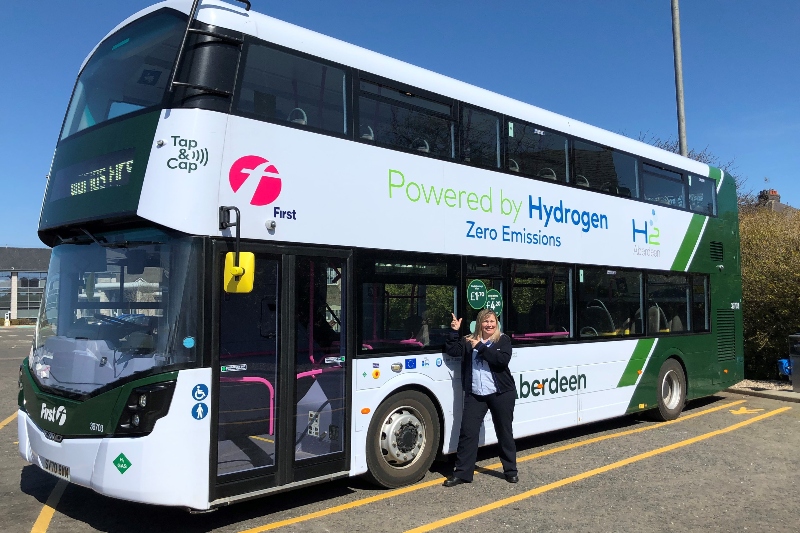First Aberdeen and Aberdeen City Council are celebrating this week after their hydrogen double-decker bus fleet notched up its first 100,000 miles of operation.
 Since launching into customer service in January, the fleet of 15 First Aberdeen buses, manufactured in the UK by Wrightbus, has already saved 170,000kg of CO2 from being released into the atmosphere – the equivalent of taking 42 cars off the road for a year – marking a significant step forward in improving the city’s air quality for its residents.
Since launching into customer service in January, the fleet of 15 First Aberdeen buses, manufactured in the UK by Wrightbus, has already saved 170,000kg of CO2 from being released into the atmosphere – the equivalent of taking 42 cars off the road for a year – marking a significant step forward in improving the city’s air quality for its residents.
Aberdeen City Council co-leader, Cllr Douglas Lumsden, said: ‘Transforming the city's carbon footprint on a large scale is no easy feat, but we're committed to making continuous progress and are proud to be leading the way in the transport industry with First Aberdeen to bring our joint vision of low emission public transport to life.’
The exhausts of this zero-emission fleet emit nothing more than water vapour and the hydrogen fuel is made from just electricity from wind power and water. Aberdeen makes its own hydrogen to power the buses, making it an even greener energy source for the local community.
The hydrogen buses make a valuable difference to the environment as well as to the health of Aberdeen’s residents as each one is expected to save 80 tonnes of CO2 emissions per year – the equivalent of removing 38 petrol or 40 diesel cars from the road.
Michelle Thomson, hydrogen bus driver at First Aberdeen, said: ‘Drivers and the public absolutely love the new hydrogen buses – sailing smoothly and silently through the city's streets is an absolute joy. We get people hopping on just for a ride, to enjoy the experience.’
To support the fleet’s deployment, Wrightbus installed a support team of hydrogen specialists on the ground in Aberdeen as well as an escalation team and a technical back-up team on 24-hour call.
Ian Gillott, Wrightbus group director, said: ‘To reach 100,000 miles is a significant milestone. It is a credit to Aberdeen City Council and to First Bus that they have embraced this new technology so readily, putting Aberdeen firmly and historically on the zero emissions map.’







